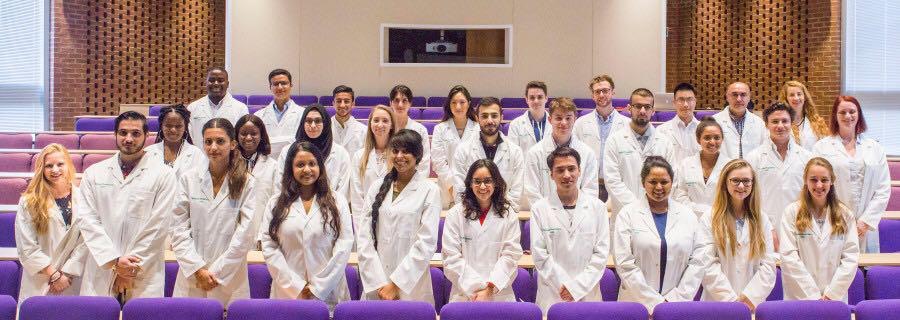Members of the University of Sussex Senate, a University decision-making body of academics, have claimed that the University Executive Group (UEG), a group of University higher management, demonstrated “A disregard for the views and decisions of Senate and contempt for its authority”. This concerns the decision by UEG and Council to close the MPharm Pharmacy course in December 2018, despite concerns expressed by Senate.
On October 12, a 30-day consultation on the future of MPharm Pharmacy began. During the consultation period, various members of the Pharmacy and other Life Sciences courses met with University representatives to voice their objections to the course closure.
On December 12, UEG, which is made up of seven people including Vice-chancellor Professor Adam Tickell, Deputy Vice-chancellor Professor Saul Becker and others in higher management such as Director of Finance Allan Spencer and Chief Operating Officer Tim Westlake, asked the Sussex University Council, the decision-making branch made up of 32 people including independent and elected members, to endorse their decision to close the course to new entrants, a request they accepted.
The decision to close the course came despite resistance from Senate, Pharmacy students and staff, and the Sussex University College Union (UCU), the Union that represents researchers, lecturers and teaching staff.
Senators have since called for an additional senate meeting to discuss the decision. Senate originally called for an ‘emergency senate’ however, a University of Sussex spokesperson stressed that “It is not an ‘emergency Senate’ meeting, it is an “additional Senate” meeting. The meeting is being held at the request of one-third of the Senate, in line with our governance arrangements”.
A memorandum sent between Senators calling for this so-called emergency senate meeting, states: “We are writing to share our concern that the authority of Senate has recently been bypassed by the University Executive Group (UEG) with regard to procedures for the opening and closing of courses”.
It also states Senators’ views that “UEG assumed the power to close courses which Senate had explicitly challenged and sent back for review. UEG then went on to seek approval from Council as the highest power of the University. These actions demonstrate a disregard for the views and decisions of Senate and contempt for its authority”.
Sussex University responded to these allegations saying, “The University’s regulations clearly place the responsibility for making such business decisions within the remit of the University’s Executive Group. As an additional step, the University sought and gained approval from its governing Council”.
The memorandum also states that the actions made by UEG to seek Council approval “are not included in the terms of reference of the UEG (see Organisations of the University, pp. 77-8) and indeed are in breach of paragraph VI.1 of the Royal Charter, according to which the Senate “shall, subject to the general control and approval of the Council, be responsible for academic standards and the direction and regulation of academic matters”.
The Organisations of the University 14.1 does, however, state that the role of UEG is “to advise and assist the Vice-chancellor in the day-to-day management of the University, in the initial formulation of policy and in the preparation of business for consideration by University statutory and other committees” which is open to interpretation.
The University’s Charter, written in 1961, also states that Senate shall “subject to the general control and approval of the Council, be responsible for academic standards and the direction and regulation of academic matters”.
The Sussex UCU responded to decision to close MPharm Pharmacy, stating, “We believe that the process leading to the closure of the University of Sussex Master of Pharmacy Programme has been a travesty. In particular, the Academic Senate’s role to review academic issues has been circumvented.
“The Sussex Branch executive proposes to contest this and future academic closures that bypass consideration by Senate through all possible means. We will instruct legal advisors to develop a case based on current University policy, regulation and charter to support the role of Senate in these matters.”
When The Badger asked the University whether they were concerned about any legal challenge on the decision, they responded “The University is confident it has acted entirely properly in this matter and in line with its Charter and Statutes.”
These documents, which are now available to the public, demonstrate that the MPharm Pharmacy course could potentially cause a large financial deficit. However, a document created by Sussex UCU and the Director of Pharmacy, Professor Bugewa Apampa, claims “Inaccuracies in the UEG modeling” which include a “Significant underestimation of student income forecast resulting from inaccurate estimates of student intake in model, underestimation of QR income brought in by staff appointed under the pharmacy business plan, and staff costs that do not reflect actual staff FTE teaching pharmacy students.”
The decision to close the course to new applicants has also sparked concern over its accreditation process. Sussex UCU told The Badger that on January 22 2019, at a meeting between Saul Becker, Pro-Vice-Chancellor for Education Kelly Coate and Head of Life Sciences Sarah Guthrie, Professor Apampa was advised that a bespoke accreditation plan had now been received from the General Pharmaceutical Council (GPhC). It was explained that course accreditation would lapse after all MPharm students have graduated or left.
Professor Apampa explained that this bespoke plan “is an accreditation variant for teaching out a provisionally accredited MPharm degree” with “consideration of full accreditation of the course for the three cohorts of students”.
A collective statement from Pharmacy students sent to The Badger states: “The whole consultation process has been extremely distressing for the whole Pharmacy department; both students and staff. This has impacted negatively on our academic performance as well as our mental wellbeing.
“The students were not thought about throughout this process as shown by the lack of support offered, and we have been left with numerous unanswered questions about our future. We, the future Pharmacists, are calling for an official Senate approved document to outline how all future consultations will be held to avoid this extremely stressful situation from happening to any other student.
“As Future Healthcare Professionals, we understand that a Consultation should never occur without adequate procedure being in place and therefore this should be rectified immediately.”
The additional senate meeting will take place on February 13.




